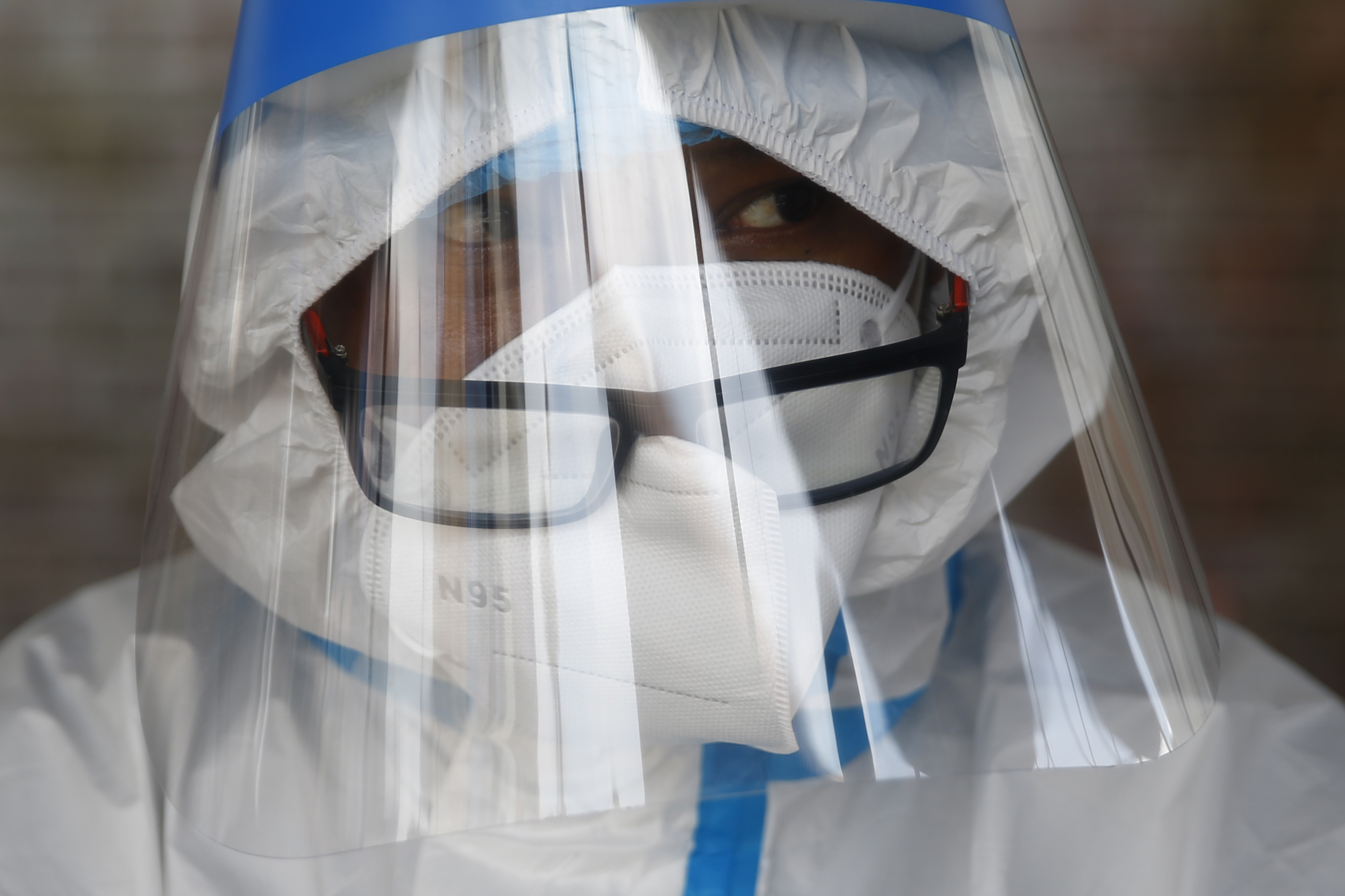14 health workers infected with coronavirus so far
Kathmandu, June 9
With the national coronavirus tally reaching 4,085, frontline health workers at high risk of contact the infection.
As per data provided by the Ministry of Health and Population, a total of 14 health workers have tested positive for the infection till date. A female aged 27 working in a hospital also tested positive for the infection.
From among health workers who tested positive for the infection, seven are staff nurses.
Three of them are from Kathmandu and one each from Bhaktapur, Parsa, Dhankuta and Kapilvastu.
Three doctors, one each from Lalitpur, Kathmandu and Kavrepalanchowk districts have also tested positive for the infection.
The doctor, who tested positive in Kavrepalanchowk, is a Nepali Army doctor.
Three health workers from Dang and one health assistant from Arghakhanchi district have also tested positive for the contagion.
All the health workers who have tested positive for the infection so far are between 22 and 36 years of age. From among health workers testing positive for the infection, seven are males and seven are females.
According to Dr Jageshwor Gautam, spokesperson for the Ministry of Health and Population, a total of 3,486 people have been kept in isolation in various hospitals after they tested positive for coronavirus.
“Hospitals should ensure the safety of health workers and their staffers by ensuring infection prevention control mechanism in the health centres,” said Dr Anup Bastola, consultant tropical medicine at Sukraraj Tropical and Infectious Disease Hospital, Teku.
Compared to the number of doctors, more number of nurses have contracted the infection.
“This is because nurses spend more time with patients and are more exposed to the virus. When patients can’t eat food on their own, nurses need to feed them when they are admitted to the isolation ward, which puts nurses at risk,” added Dr Bastola.
“Health practitioners should not expose themselves to patients.
They must follow the standard operating procedure while attending to their patients. Also there should be availability of personal protective equipment for health workers as per the requirement. Doctors and nurses must put on, use, take off, and dispose PPE properly,” added Dr Bastola.
“Hospital management should give them clear information about ways to prevent infection. Also the infrastructure in the hospitals should be built in a way that helps prevent coronavirus spread. For instance, there should be separate rooms for changing clothes,” Dr Bastola added.
According to World Health Organisation, health workers are at the frontline of the battle against COVID-19. They are exposed to hazards such as pathogen exposure, long working hours, psychological distress, fatigue, occupational burnout, stigma and physical and psychological violence.
WHO recommends that health workers must follow established occupational safety and health procedures, avoid exposing others to health and safety risks, and participate in employer-provided occupational safety and health training; self-monitor for signs of illness and self-isolate and report illness to managers, if it occurs.
A version of this article appears in e-paper on June 10, 2020, of The Himalayan Times.






